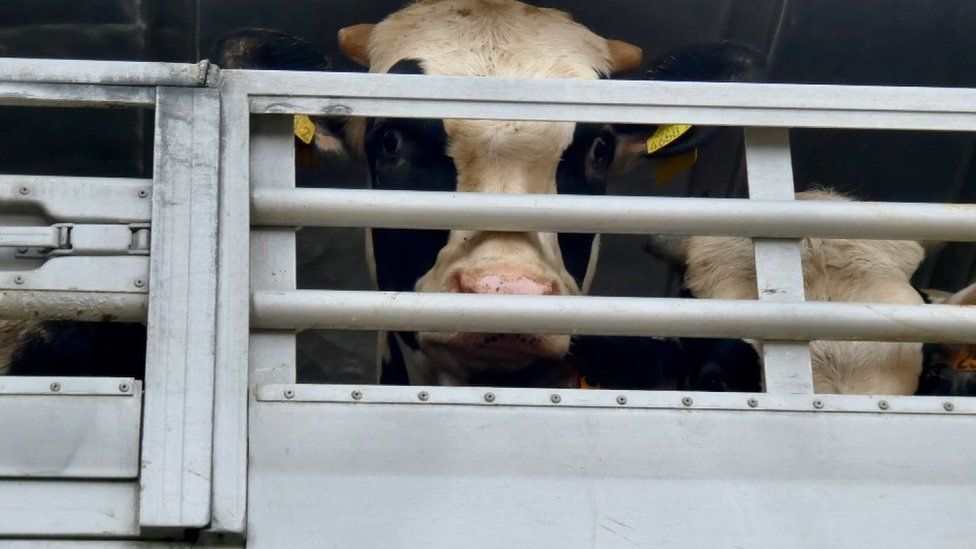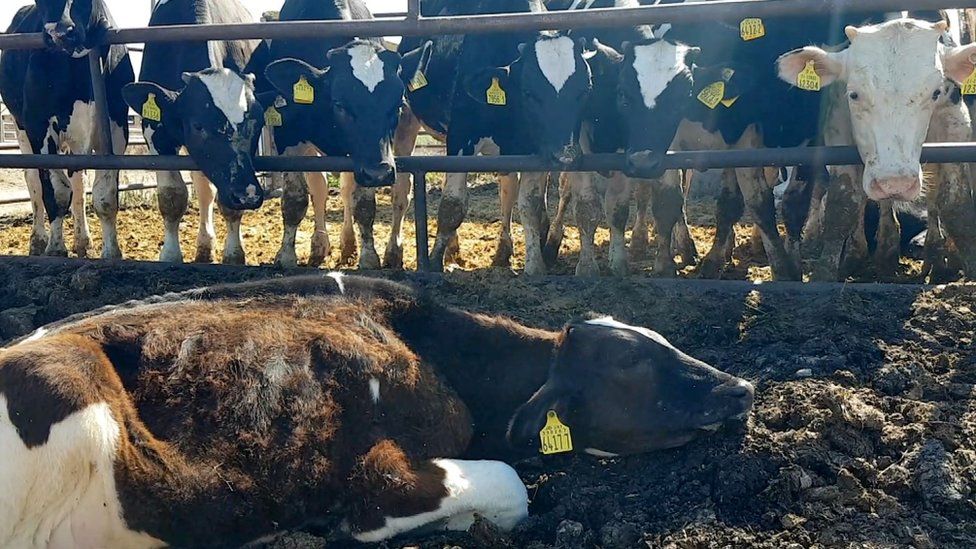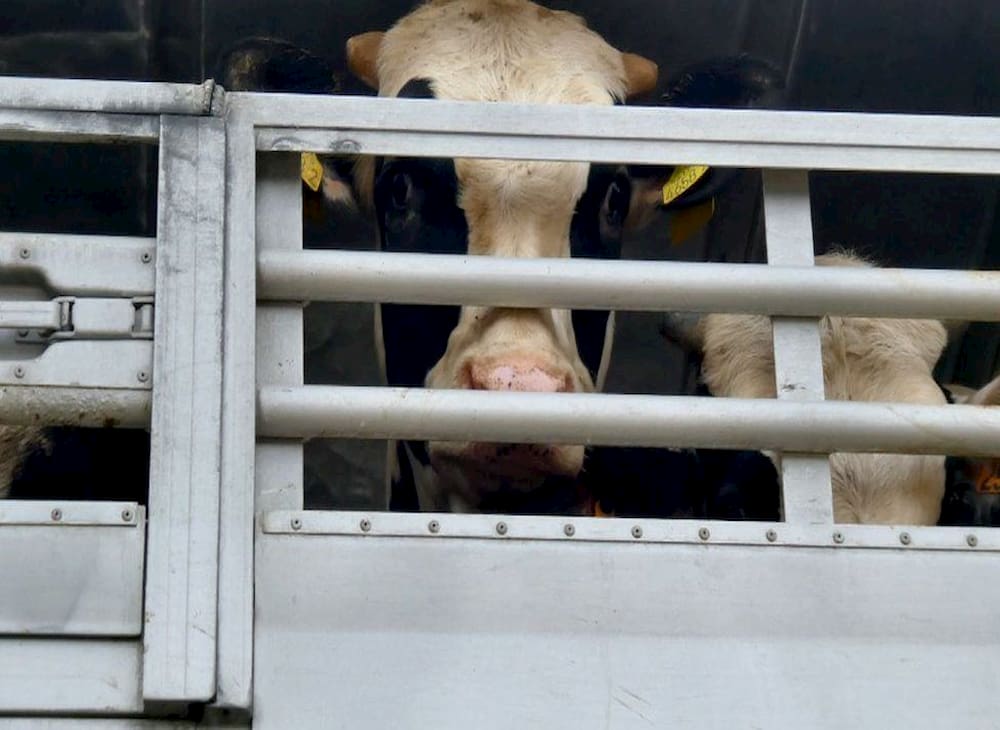BBC 2 screened a devastating expose on Live Exports with British calves being exported to the Lebanon from southern Spain after going via Northern Ireland and Ramsgate. Video footage of us at Ramsgate and McKenna’s transporter last year was shown and inside a slaughter house in Lebanon where a British bull was brutally slaughtered.
The BBC report on 8 October 2020:
Concern over UK cattle slaughtered in Middle East
By Jon Ironmonger, BBC News

Livestock from the UK is being shipped to the Middle East and slaughtered in “dreadful, terrifying” ways, animal welfare charities claim.
Over the summer, the charities tracked cattle on long journeys via Spanish fattening farms and ports.
In footage, shared with the BBC, a dead bullock at an abattoir in Lebanon in August is seen to have a UK ear-tag.
The Department for Environment, Farming and Rural Affairs (Defra) said it was committed to improving animal welfare.
UK livestock is protected by EU laws during transport. Britain does not export animals to third countries for slaughter or fattening where welfare standards are lower.
But undercover filming by Animals International and the German Animal Welfare Foundation (AWF) provided video evidence suggesting British livestock is being re-sold in Europe to the Middle East.
One UK bullock, believed to be from Northern Ireland, is recorded at the port of Cartagena in Spain in July before being loaded onto a vessel destined for Libya.
“In 30 years of working, nothing compares with the horrors of a slaughter house in North Africa or the Middle East”, said Peter Stevenson from Compassion in World Farming.
“Footage from the facility in Lebanon shows the same, awful methods we have seen before,” he said.
“Animals are hacked at repeatedly until they die. Often they are winched up by a leg or their tendons are slashed to disable them.”
Animals International said it was “appalling” to find British cattle being killed in Lebanon by “poorly equipped, untrained workers, while fully conscious and terrified”.
The charity found livestock carriers took around a week to sail from Cartagena to Libya or Lebanon.
A landmark veterinary report into the transport of livestock in 2016 concluded that animals suffered every day at sea in filthy, cramped conditions.

Calves in particular were found to die frequently of disease, thirst or heat-related illnesses.
The former Environment Secretary Theresa Villiers said: “It is stomach-churning to think of cattle from the UK being subjected to such horrific treatment.
“This footage should be a wake-up call,” she said.
“Now we have left the EU, the government needs to ban live exports for slaughter or fattening.”
The UK currently exports some livestock to third countries for breeding. EU rules, which apply in the UK until at least January, limit the number of hours animals can travel without being rested and also the density of stock. They also require various vet checks at borders.
Unweaned male calves are by-products of the dairy industry. The UK exported around 17,000 last year to Spain, the majority from Northern Ireland.
However, consignments have fallen this year and in September Scotland agreed to stop shipping calves through the port of Ramsgate in Kent .
Having reached Spain calves are typically fattened on farms before being slaughtered or re-exported.
At a facility in Catalonia in June, charity workers say they filmed a UK calf that had been moved outside of its pen and left to die.
Maria Boada, an AWF vet, who gathered the footage, said: “The calf was suffering from a respiratory illness, which is common after long, stressful journeys with little food or milk replacement.
“For many farmers, sick calves are seen as disposable due to their low value and ready availability.”
Recent Lords amendments to the Agriculture Bill to ban live exports have been defeated.
A Defra spokesman said: “Now that we have left the EU, we will be taking forward the manifesto commitment to end excessively long journeys for animals going to slaughter and fattening.”
The National Farmers Union said the standards seen in the abattoir were “appalling” and fell far below what is required of British farmers.
A spokesperson said it had developed its own proposals for a live export assurance scheme.
“We will be looking to work with the government to implement it so that we can maintain this important trade under the highest standards of animal welfare,” he said.


